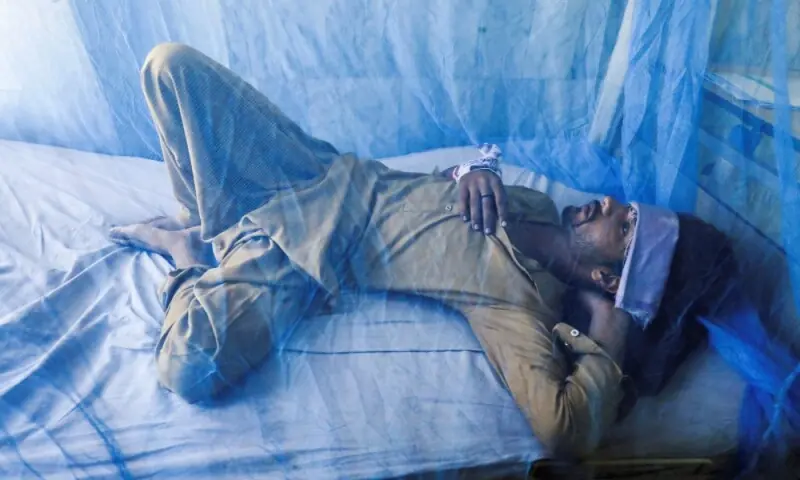The Pakistan Meteorological Department (PMD) has warned of “an unprecedentedly high risk of a severe dengue outbreak”, particularly in ten major cities of Pakistan, including Karachi, Lahore and Islamabad.
Apart from these three cities, the PMD said, it is predicted that dengue may spread in Faisalabad, Sialkot, Rawalpindi, Peshawar, Sukkur, Hyderabad and Multan as well as in flood affected areas across the country, owing to prolonged monsoon rainy season.
“Pakistan is facing severe and widespread flooding due to heavy and prolonged monsoon rains, river overflows, and water releases from reservoirs. Large parts of Punjab and Sindh, including urban areas are inundated, villages submerged with millions displaced, and shelters overcrowded.
“The floods have left behind stagnant water and poor drainage, creating conducive environmental conditions for mosquito breeding and dengue transmission,” the Met Office said.
ICT: Alarming surge in dengue cases
Dengue fever has become a persistent threat to public health in Pakistan over the last decade, with major outbreaks reported during the post-monsoon season September 20 to December 5, it said, adding scientific analysis shows that dengue risk is the highest when the temperatures thresholds remain between 26-29°C (for 3-5 weeks), relative humidity exceeds 60% and rainfall surpasses 27 mm with a lag effect of up to three weeks.
“Mosquitoes responsible for dengue transmission are most active during two hours after sunrise and two hours before sunset, and their breeding slows only when temperatures fall below 16°C,” the weather advisory department said.
The prevailing parameters are creating an ideal environment for a dengue outbreak, it said. The combined impact of favourable weather thresholds and flood-related waterlogging has made condition conducive from September 20 for the dengue onset.
The PMD advised all stakeholders, including district administrations and health departments and general public, immediately adopt the pre-emptive measures to counter the risk of a dengue outbreak in vulnerable areas.
National health agencies and dengue control centers must remain on high alert, strengthen the preparedness of healthcare facilities, and intensify vector control operations, it stressed.
Latest dengue situation, steps aimed at dealing with challenge reviewed
Advising the health departments, local authorities and dengue control centres, the PMD said they should monitor environmental and meteorological data regularly (temperature, humidity, rainfall) to track dengue risk windows.
It said they should take the following preventive measures as well:
• Conduct widespread fumigation, spray larvicides, and clear blocked drains and stagnant water, especially in flood-hit areas.
• Include mosquito control and sanitation measures in all flood relief operations and shelter management.
• Launch mass campaigns through TV, radio, social media, mosques, and local community leaders to educate people about prevention and early medical consultation.
• Coordinate with national/provincial disaster management authorities dealing with floods to ensure that flood relief shelters and camps are kept clean, dry (as much as possible), and that water supply and sanitation are managed to avoid mosquito breeding.
For the general public, the department advised:
• Remove or empty containers collecting water around your home: old tires, buckets, debris, tarpaulins, any object that holds rainwater.
• Cover water storage containers properly.
• Use mosquito repellent, mosquito nets, coils especially during early morning and late afternoon.
• Wear long sleeves and pants when outside at peak mosquito hours.
• Ensure windows/doors are screened or kept closed when possible.
• In flood affected or evacuated areas, maintain hygiene: avoid standing water around tents or shelters; use treated or boiled water; and keep surroundings clean.
